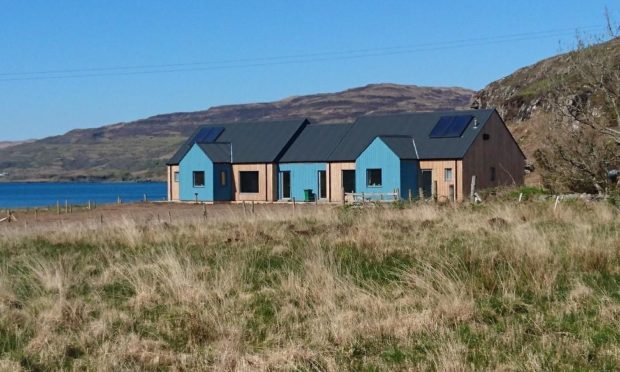Many parts of the Highlands and islands are in the grip of a rapidly worsening housing crisis that threatens to undo much of the progress made in the region in recent decades.
At a point when (as shown by successive surveys) lots of young people are keen to make homes and careers for themselves in Scotland’s north and north-west, it’s becoming impossible for them to find anywhere to stay.
Big numbers of existing houses have been converted into holiday lets or sold as second homes at prices way beyond the reach of local folk – young folk in particular.
And for all that community groups are making heroic efforts to provide accommodation at affordable rents, their impact is necessarily limited.
Given the sheer scale of the problem and the concern that it’s generated, it might have been expected that, in the run-up to May’s Scottish parliamentary election, political parties would be advancing all sorts of imaginative solutions to it.
But there’s precious little sign of that. It’s as if, in today’s ever more centralised and Holyrood-focused Scotland, politicians of all stripes have given up on the notion that an area like the Highlands and islands might require policies tailored to its distinctive requirements.
Regional programmes of this sort were once standard. They started in the closing decades of the 19th Century when Liberal governments granted a uniquely comprehensive form of security of tenure to crofters and when Conservative administrations began investing heavily in railways, roads and harbours. The early 20th Century saw the creation of the Highlands and Islands Medical Service – a localised precursor of the much later NHS.
In the 1940s came the North of Scotland Hydro Electric Board with its commitment to connect virtually every home, however inaccessible, to the national grid.
Next up, in the 1960s, was the Highlands and Islands Development Board.
The cumulative impact of all this activity, boosted further by late 20th Century initiatives like the push for what’s now the University of the Highlands and Islands, was hugely positive.
The runaway depopulation that set in at the time of the Highland Clearances was halted and widely reversed. Poverty was beaten back. Living standards were raised.
An area once thought to offer its young people next to no prospects began to be seen as a good place to be.
Now the increasing scarcity and unaffordability of accommodation of all kinds is putting these gains at risk.
Which is why the politicians now bidding for our votes might give some thought as to how they might tackle Highlands and islands housing shortages with the energy and imagination shown by the creators of the Hydro Board or the HIDB.
The necessary legislation could make it much harder for existing homes to be taken out of local use.
It could include means of getting land (a commodity of which there’s no lack in the north) made available for building at prices way below those of the speculative rates that have become so prevalent.
It could provide finance, from Scottish or UK sources, for widespread construction of homes for rent. If 20th Century precedent were to be followed, measures of that sort would be entrusted to an agency of the Hydro Board or HIDB variety.
It might be better, however, if the necessary powers and resources were made available to existing local authorities – thus revitalising councils which have for far too long been starved of cash and shorn of responsibilities by ministers convinced that they alone should be in charge of everything that matters.
Nothing suggested here is meant to be definitive. There may well be other and better ways of ensuring that everyone wishing to live in the Highlands and islands is given the chance to do so.
But what’s certainly needed from our current or aspiring politicians – and what’s so far missing – is heavyweight engagement with this issue.
Time was when Highlands and islands difficulties produced all sorts of radical responses from governments.
That’s how it came about that it was made impossible for crofters to be evicted by their landlords – and why it was thought appropriate, decades in advance of the NHS, for people in the north to be provided with state-funded doctors and nurses.
If, in the Highlands and islands, we’re to ensure that young folk – without whom there can be no worthwhile community life – are to have access to adequate homes, there needs today to be a similar willingness to think seriously and innovatively about how this is to be accomplished.
Jim Hunter is a historian, award-winning author and Emeritus Professor of History at the University of the Highlands and Islands.

